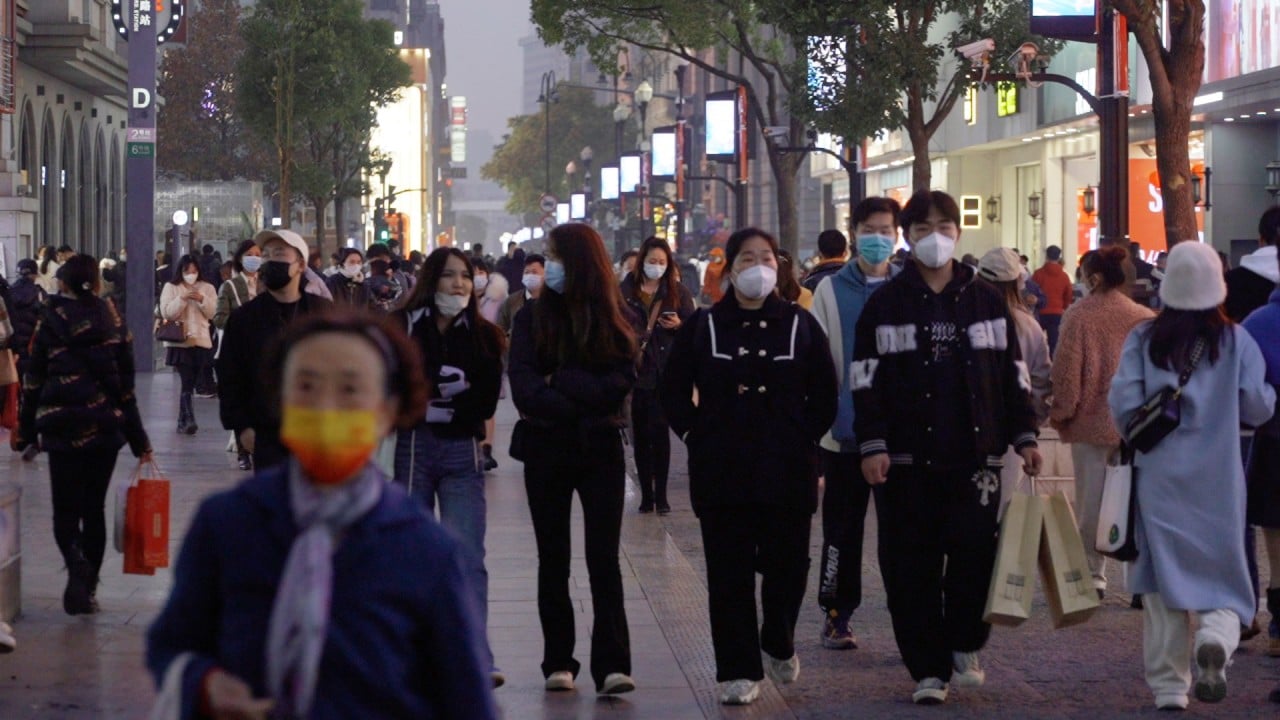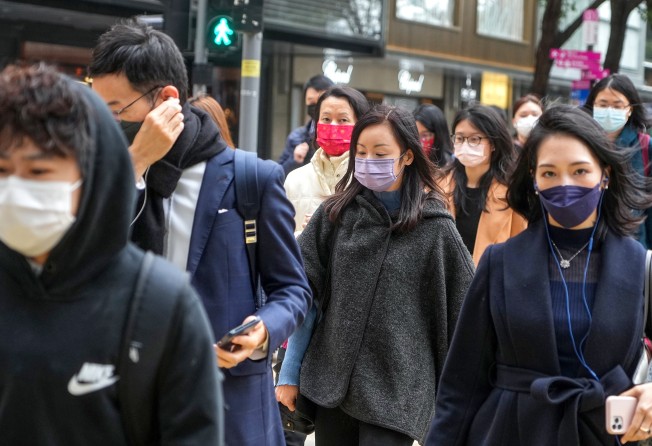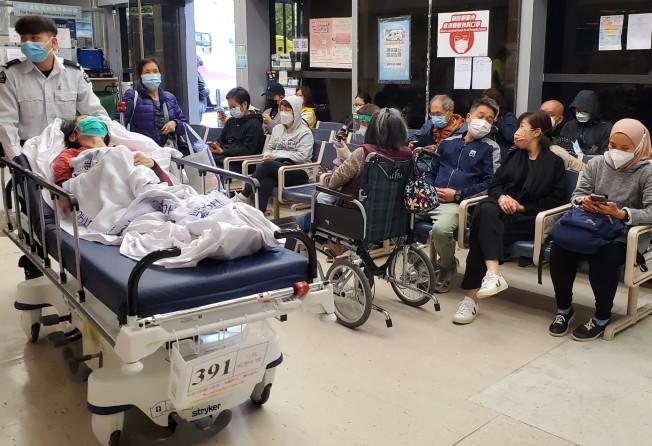
05:12
No longer afraid: people in Chinese city of Wuhan begin to leave Covid pandemic behind

Hong Kong should ease its last coronavirus curbs based on its own epidemic situation, local medical experts have said ahead of a meeting of the World Health Organization to discuss whether Covid-19 should still be considered a global emergency.
Speaking before the international body’s emergency committee meeting on Friday, the health experts also considered whether the government should soon begin a review of its handling of the epidemic or wait until a later date.
“If the WHO says Covid-19 is no longer a public health emergency of international concern, many government officials, both Hong Kong and overseas, could also take a more relaxed approach towards policy decisions,” Professor David Hui Shu-cheong of Chinese University said on Thursday.
But the government pandemic adviser also said the city’s epidemic situation should determine what restrictions remained in place.
Citing the mask mandate as an example, Hui said the policy could be revised after winter to cover public transport, healthcare facilities and care homes instead of most public spaces.
But the testing requirement for all care home staff and visitors should continue given the regular reports of cases linked to such facilities, he added.
“If testing is not done and not everyone there is fully vaccinated, how can we protect those who haven’t completed their vaccination?” he said, adding similar measures should be retained at hospital wards treating more vulnerable patients.
The WHO in early 2020 declared Covid-19 a public health emergency of international concern, which means “an extraordinary event which is determined to constitute a public health risk to other states through the international spread of disease and to potentially require a coordinated international response”.
Since the early stages of the pandemic, Hong Kong had implemented stringent travel and social-distancing curbs. It rolled back most of its restrictions late last year following a similar move by mainland Chinese authorities, with isolation orders to become the latest to be lifted from January 30.
Hong Kong logged 2,401 new infections on Thursday, 64 of which were imported, and 28 more deaths. The overall tally stands at 2,867,008 cases and 13,258 related fatalities.
Respiratory medicine specialist Dr Leung Chi-chiu echoed Hui’s remarks that restrictions should be adjusted based on Hong Kong’s own epidemic situation and not on the WHO’s decision.
“Individual countries or places should make decisions based on the problems they are currently facing,” Leung said. “It is not as if what the WHO says will dictate what other places should do.”
Hong Kong has maintained an emergency response level towards Covid-19 for three years. Under the current system, the virus is considered to pose a high and imminent risk of infection among the population, with all government departments advised to have plans in place to tackle the coronavirus.
Leung said the response level should only be downgraded when the local epidemic situation was under control, which he defined as when the healthcare system could cope with the lifting of the remaining restrictions.
Testing rules at care homes should stay in place and the mask mandate should only apply in select locations, he added.
But the respiratory medicine specialist said authorities could scrap rules requiring incoming travellers to submit test results before they depart and the daily screening of students, starting with secondary schools.
Meanwhile, Professor Yuen Kwok-yung of the University of Hong Kong urged the government to conduct a review of its handling to prepare for the emergence of other infectious viruses.
“After three years, it is time to conduct a comprehensive review to prepare for the next pandemic so we can do better,” the government pandemic adviser told a radio programme.

He pointed to the establishment of the Centre for Health Protection following an independent committee’s review of the 2003 outbreak of severe acute respiratory syndrome (Sars).
The decision to invest more into infectious disease research and surveillance after Sars had also contributed to Hong Kong’s handling of the Covid-19 pandemic, allowing city authorities to stay informed during the early stages of the first reported outbreak on the mainland, Yuen said.
Fellow health experts Hui and Leung said they had no objection to an independent review, but argued it could be launched at a later date.
“The epidemic has not yet come to an end … We can only review what could be done better after the epidemic has become very stable,” Hui said.
The current epidemic situation could change with the possible emergence of new variants, he explained, citing how Omicron subvariant XBB last summer had contributed to a spike in cases in Singapore.
“With more time, we would know more clearly what can be improved,” he said.
Agreeing that the review could be done later, Leung said areas the probe should cover were the city’s vaccination drive, which reported a slow uptake during its 2021 launch, and the relatively high rates of hospitalisations and deaths among care home residents.
The Health Bureau on Thursday said authorities would continue to follow science-based principles and adopt targeted measures, while risks were being regularly assessed to determine appropriate measures.
A government spokesman said the city was on the way to normality, attributing the resumption of cross-border travel with the mainland and the return of international events to an ongoing review and timely adjustment of epidemic measures.